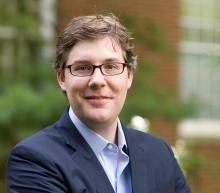Matthew Hedstrom

Project
Religion of Humanity: Spirituality, Politics and the United Nations
My year as a Mellon Fellow will support work on a book in progress, called The Religion of Humanity: Spirituality, Politics, and the United Nations. The Religion of Humanity explores the religious history of world government, going back into the nineteenth century and forward to the late twentieth, though centrally concerned with the UN and its religious contexts, constituencies, and contestations in the 1940s, 1950s, and 1960s. The long arc of the plot follows the intersecting histories of two great liberal dreams of the modern age—the religious vision of a shared “religion of humanity” and the political vision of world government—as they converged and diverged across the nineteenth and twentieth centuries. At its most expansive, then, this is a book about human oneness, and how that was conceived, spiritually and politically, across nearly two centuries. At its most narrow, it’s a book that examines in detail the religious and political struggles around the United Nations in the mid-twentieth century. The Religion of Humanity will be the first book to examine the religious history of the UN and world government at this scope, including both the religious genealogy of its animating ideals and the many shades of religious significance it came to acquire once established. The theoretical concerns that frame the project, about spirituality, liberalism, cosmopolitanism, and secularism, come from religious studies, political theory, and US religious and political history.